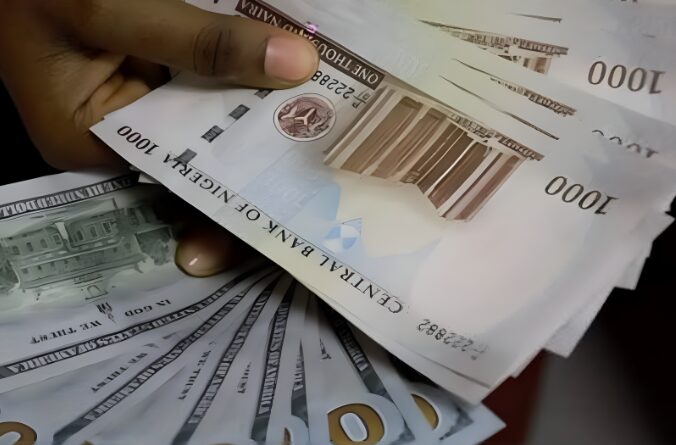The Nigerian naira has held steady within the N1500 range against the US dollar at the parallel market, while the US Dollar Index surpassed 105 index points.
Nigeria’s high inflation figures have restrained the local currency’s upward movement despite a cautious stance from the Central Bank of Nigeria (CBN).
Over the past year, the naira has depreciated by over two-thirds of its value.
According to data from the National Bureau of Statistics (NBS), Nigeria’s core inflation, which excludes energy and agricultural products, rose to 27% from 26.8% in May. Additionally, food inflation increased from 40.3% in April to 40.66% in May.
Nigeria’s headline inflation rate is expected to persist due to ongoing disruptions in food supply, heightened demand during the Eid-Mubarak festive period, and the upcoming rise in the minimum wage.
The rapid depreciation of the naira has also increased the costs of food imports. Despite the country’s heavy dependence on imports, Nigerian importers face high tariffs on food products.
Certain commodity prices have risen further due to increased levies from the naira’s depreciation.
Macroeconomic Factors Favoring Nigeria’s FX Market
However, fundamental market factors suggest that the naira is unlikely to reach its lowest point seen in February, at least not this month, partly due to recent measures by the CBN.
The CBN established a special account with $2.9 billion to stabilize the country’s volatile foreign exchange market.
This announcement followed observations by members of the FAAC Post-Mortem Subcommittee, who noted transfers of proceeds from royalties and Production Sharing Contract (PSC) taxes sales to the Gazelle Funding account in the Nigerian National Petroleum Company Limited (NNPCL) report last month.
Additionally, the African Export-Import Bank (Afreximbank) reported transferring an additional $925 million for Nigeria’s oil-backed prepayment facility into the Project Gazelle Funding account on June 6.
Originally, funding for this project was provided by the Nigerian National Petroleum Company Limited (NNPCL).
Furthermore, Nigeria’s receipt of a $2.25 billion World Bank loan aimed at stabilizing the economy and providing additional support to the poorest and most vulnerable segments of the population is expected to increase dollar availability and bolster the weakening naira.
Meanwhile, the euro stabilized after a politically influenced decline last week.
Market participants are anticipating the US retail sales report and comments from Federal Reserve officials to gauge the timing of potential interest rate cuts.
The US Dollar Index measures the dollar’s strength against six major currencies and recently rose to 105.46, marking an increase of 0.18%. It retreated slightly from the six-week high of 105.4 set on Friday, falling 0.2%.
The dollar reached levels around 105.8 last seen in early May during the past week.
Political uncertainty in Europe and expectations that the Federal Reserve will maintain its current policy stance for an extended period have contributed to the dollar’s recent gains for the second consecutive week.











